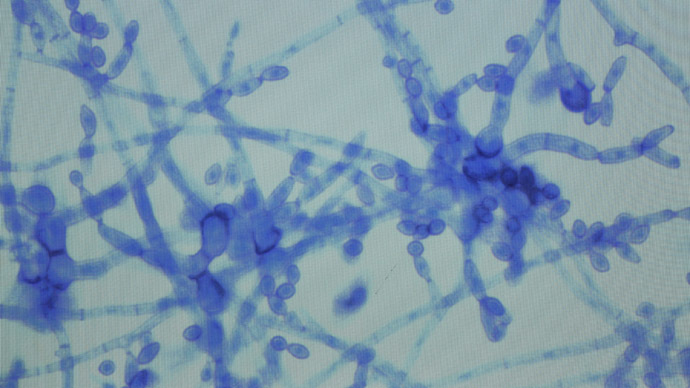New technique fights aging, extends life of cultured human cells

The high vulnerability of cultured adult stem cells has posed a big problem for microbiological research. But a new technique, developed by Stanford scientists, can extend the life of cultured cells and offer clues to solving diseases and prolonging life.
The technique can quickly increase the length of human telomeres, the protective caps on the ends of chromosomes. As a result, the treated cells behave as if they are much younger and multiply with abandon in the laboratory dish – rather than stagnating and dying. Normally, telomeres shorten with each cell division, and this is the reason a cell eventually dies.
“Now we have found a way to lengthen human telomeres by as much as 1,000 nucleotides, turning back the internal clock in these cells by the equivalent of many years of human life,”said Helen Blau, PhD, professor of microbiology and immunology at Sanford, in a statement. “This greatly increases the number of cells available for studies such as drug testing and disease modeling.”
Image from: http://t.co/9a8ewkSN2ahttp://t.co/kl1lLZoslp
— Jim Sharp (@jim1036) February 2, 2015
The procedure involves the use of a modified type of RNA (ribonucleic acid), one of the features of a chromosome. RNA carries instructions from genes in the DNA to a cell’s protein-making factories, and with the new method increases the length of telomeres by 10 percent, allowing the cells to divide about 28 more times for skin cells, and about three more times for muscle cells.
“This new approach paves the way toward preventing and treating disease of aging,” said Blau. “There are also highly debilitating genetic diseases associated with telomere shortening that could benefit from such a potential treatment.”
Blau and her colleagues became interested in telomeres when studying the muscle stem cells of boys with Duchenne muscular dystrophy – a genetic disease that leads to muscle wasting – and who also exhibited shorted telomeres.
Lengthening telomeres?! That could be a huge player in longevity! http://t.co/vMNwaEpliw#aging#genetics
— Dr. Rogers (@flydocrog) January 23, 2015
A paper describing the research extending telomeres was published in FASEB Journal.
“This study is the first step towards the development of telomere extension to improve cell therapies and to possibly treat disorders of accelerated aging in humans,” said John Cooke, co-author of the study and now chair of cardiovascular science at the Houston Methodist Research Institute.
READ MORE:‘Devastating’ implications of drug-resistant superbugs now a reality – WHO
If successful, the new technique could make adult stem cells, or differentiated stem cells, more viable for research, since they typically cannot be cultured indefinitely in a lab. While controversial, embryonic stem cells – derived from embryos developed from eggs that have been fertilized at an in vitro fertilization clinic – have advantages over adult stem cells because they are more resilient. They are also less likely to be rejected in therapies.












